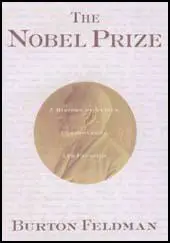Nobel Peace Prize

In 1866 Alfred Bernhard Nobel of Sweden produced what he believed was a safe and manageable form of nitroglycerin called dynamite. He established his own factory to produce it but in 1864 an explosion at the plant killed Nobel's younger brother and four other workers. Deeply shocked by this event, he now worked on a safer explosive and in 1875 came up with gelignite.
By the time Nobel died on December 10th 1896, he had obtained a massive fortune. He left instructions that most of his money should be used to endow annual Nobel prizes. The very first awards were made in 1901 on the fifth anniversary of Nobel's death. The first winner was Henri Dunant, the founder of the International Committee of the Red Cross and the main figure behind the Geneva Convention.
The Nobel prizes are now awarded to those who have contributed most to the common good in the areas of Physics, Chemistry, Medicine, Literature and Peace (a sixth for Economics, which is financed by the Swedish National Bank, was first awarded in 1969). The prizes have a large cash award and are given to organizations such as the United Nations peacekeeping forces, which received the Nobel peace prize in 1988 as well as individuals such as Nelson Mandela.
